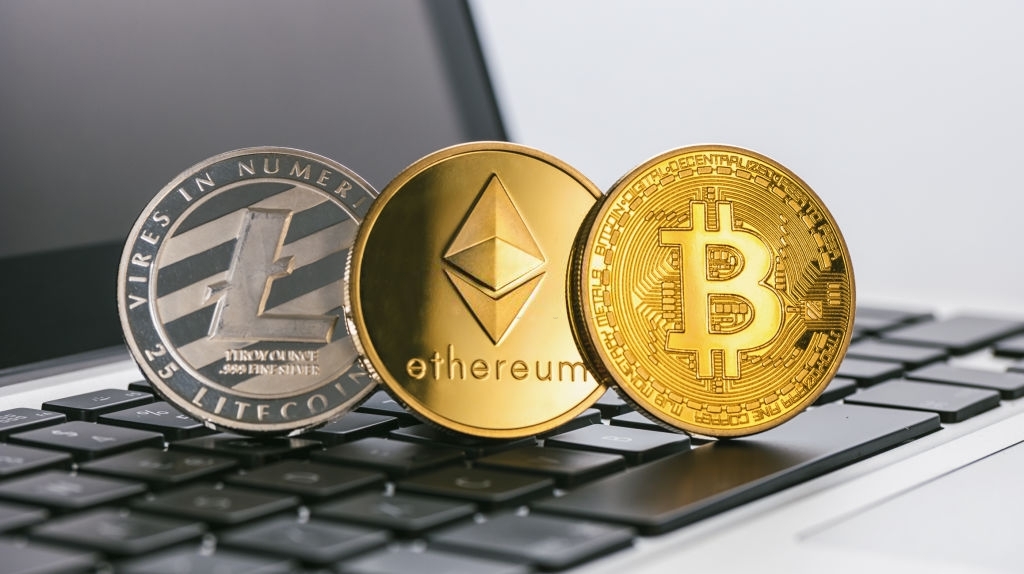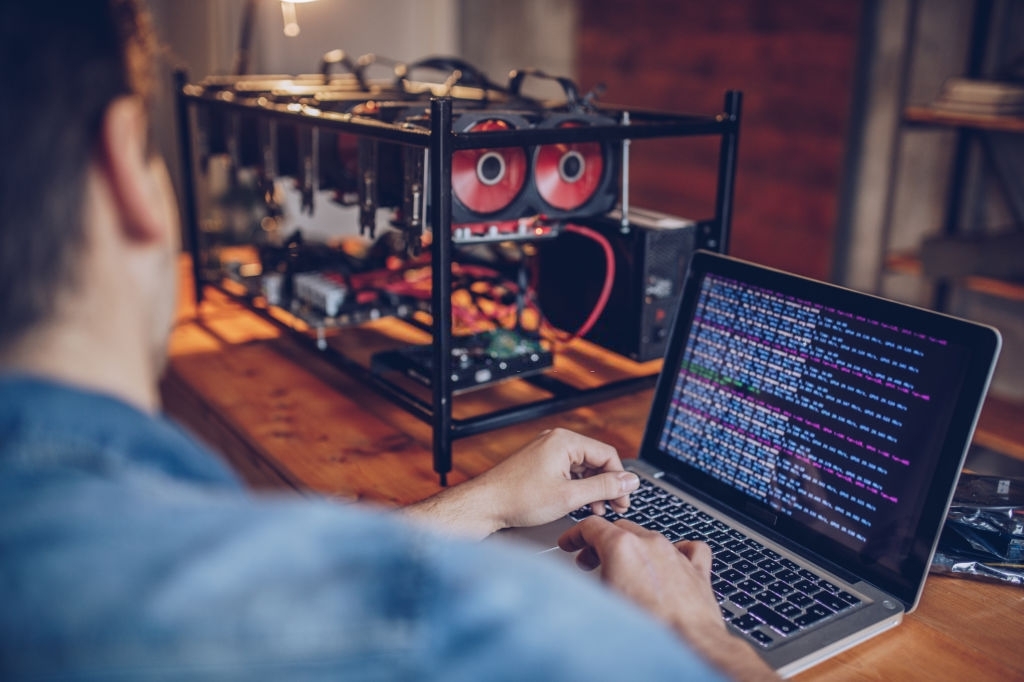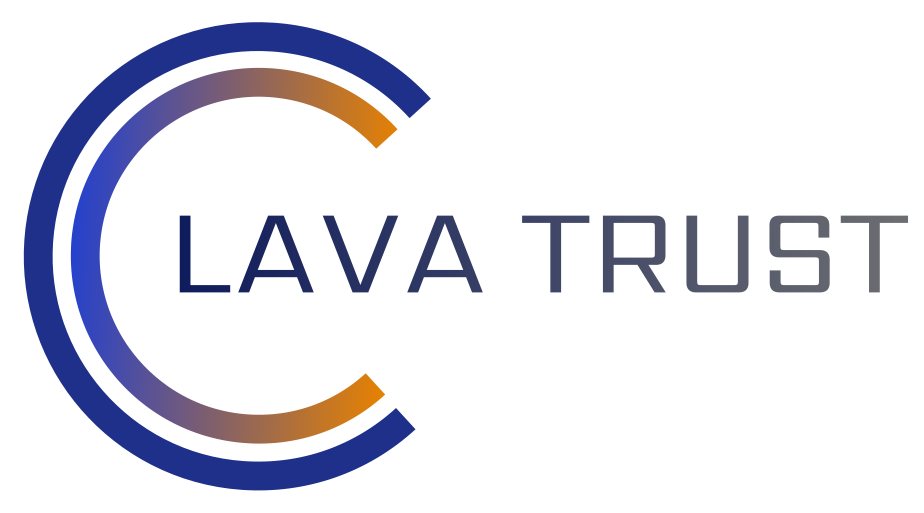News & Insights
HOME / NEWS & INSIGHTS
OUR
INSIGHTS
We post latest news, blog content, and what RCIF has been involved with lately. Disclaimer *this should not be considered financial advice*.

MINING INCOME UPDATE 7/31/2020
We are focused on generating income for our investors. We generate income from operating digital toll-booths…..

MINING INCOME UPDATE 7/15/2020
We are focused on generating income for our investors. We generate income from operating digital toll-booths…..

MINING INCOME UPDATE – 7/8/2020
We are focused on generating income for our investors. We generate income from operating digital toll-booths…..

MINING INCOME UPDATE – 7/1/2020
We are focused on generating income for our investors. We generate income from operating digital toll-booths…..

MINING INCOME UPDATE – 6/24/2020
We are focused on generating income for our investors. We generate income from operating digital toll-booths…..

MINING INCOME UPDATE – 6/17/2020
We are focused on generating income for our investors. We generate income from operating digital toll-booths…..

JULY 2019 SUMMARY
Portfolio diversification is the practise of spreading your investments around so that your…

MINING INCOME UPDATE – 6/10/2020
We are focused on generating income for our investors. We generate income from operating digital toll-booths…..

JUNE 2019 COMMENTARY
In this month’s letter I would like to talk about one of the companies in our Portfolio:…

MAY 2019 COMMENTARY
In the month of May 2019, IC fund returned 36.82% to the partners in the fund. The biggest…
FAQ’s
Frequently Asked Questions
Blank
WHAT IS BITCOIN?
HOW DOES BITCOIN WORK?
An address is like a bank account into which a user can receive, store, and send bitcoins. Instead of being physically secured in a vault, bitcoins are secured with public-key cryptography. Each address consists of a public key, which is published, and a private key, which the owner must keep secret. Anyone can send bitcoins to any public key, but only the person with the private key can spend them. While addresses are public, nobody knows which addresses belong to which people; Bitcoin addresses are pseudonymous.
After depositing your bitcoins into a “wallet”, the wallet alerts (“broadcasts”) every other user of bitcoins that it contains bitcoins. This information is incorporated into the block chain. The wallet generates a public key accessible to anyone and a private key (unless your wallet is on an exchange, such as Bitstamp) or address that authorizes sending bitcoins to other public addresses. If you want to, say, purchase a flight on Virgin Galactic, you contact them, make a user account (e.g., your name), and then tell them that payment will come from your public key. You then go to your wallet or exchange and broadcast the amount from your public key to their public key. This is published on a peer-to-peer network which validates it against the sender’s public key, checks that the sending address’s balance is sufficient, and propagates it to all of the other nodes on the network. The transaction is eventually received by a miner, who incorporates the transaction into a block. This block is then flooded into the network and is incorporated into the global block chain. The bitcoins now belong to Virgin Galactic’s public key.
HOW DOES ONE ACQUIRE BITCOINS?
- As payment for goods or services.
- Purchase bitcoins at a Bitcoin exchange.
- Exchange bitcoins with someone near you.
- Earn bitcoins through competitive mining
While it may be possible to find individuals who wish to sell bitcoins in exchange for a credit card or PayPal payment, most exchanges do not allow funding via these payment methods. This is due to cases where someone buys bitcoins with PayPal and then reverses their half of the transaction. This is commonly referred to as a chargeback.
HOW DIFFICULT IS IT TO MAKE A BITCOIN PAYMENT?
WHAT ARE THE ADVANTAGES OF BITCOIN?
• Very low fees – Bitcoin payments are currently processed with either no fees or extremely small fees. Users may include fees with transactions to receive priority processing, which results in faster confirmation of transactions by the network. In addition, services exist to assist merchants in processing transactions, converting bitcoins to fiat currency, and depositing funds directly into merchants’ bank accounts daily. As these services are based on Bitcoin, they can be offered for much lower fees than with PayPal or credit card networks.
• Attractive for microtransactions – Because the fees are so low, bitcoins can be used in transactions that are economically unattractive for most merchants, especially in developing countries.
• Fewer risks for merchants – Bitcoin transactions are secure, irreversible, and do not contain customers’ sensitive or personal information. This protects merchants from losses caused by fraud or fraudulent chargebacks, and there is no need for payment card industry compliance. Merchants can easily expand to new markets where either credit cards are not available or fraud rates are unacceptably high. The net results are lower fees, larger markets, and fewer administrative costs.
• Security and control – Bitcoin users are in full control of their transactions; it is impossible for merchants to force unwanted or unnoticed charges as can happen with other payment methods. Bitcoin payments can be made without personal information tied to the transaction. This offers strong protection against identity theft. Bitcoin users can also protect their money with backup and encryption.
• Transparent and neutral – All information concerning the Bitcoin money supply itself is readily available on the block chain for anybody to verify and use in real-time. No individual or organization can control or manipulate the Bitcoin protocol because it is cryptographically secure. This allows the core of Bitcoin to be trusted for being completely neutral, transparent, and predictable.
CAN BITCOIN LEAD TO NEW BUSINESSES?
• Smart multi-signature escrow services
• Financial derivatives
• Identity and reputation systems
• Savings wallets
• Crop insurance
• Decentralized (yet managed) data feeds
• Peer-to-peer gambling
• On-chain stock market transactions
• On-chain decentralizedmarketplace
• Decentralized dropboxes
• Sub-currencies
The most ambitious of all cited applications is the concept of DAO’s — autonomous entities that operate on the block chain without any central control, avoiding all dependence on legal contracts and organizational bylaws in favor of having resources and funds autonomously managed by a self-enforcing smart contract on a cryptographic block chain.
There does not seem to be a need to create a new currency, or even a new protocol, when the problem can be solved entirely by using existing technologies. While a planned update to the Bitcoin protocol (Version 0.9) does allow for limited data use within transactions, the scripting systems intrinsic to Bitcoin are currently far too limited to allow the kind of arbitrarily complex computation that DAO’s require.
WHAT ARE THE DISADVANTAGES OF BITCOIN?
• Volatility – The total value of bitcoins in circulation and the number of businesses using Bitcoin are still very small. Therefore, relatively small events, trades, or business activities can significantly affect the price. In theory, this volatility will decrease as Bitcoin markets and the technology matures. Never before has the world seen a start-up digital currency, so it is difficult to forecast how it will play out.
• Ongoing development – Bitcoin software is still in beta with many incomplete features in active development. New tools, features, and services are being developed to make Bitcoin more secure and accessible to the masses. Some of these are still not ready for everyone. Most Bitcoin businesses are new and still offer no insurance. In general, Bitcoin is still maturing.
WHY DO PEOPLE TRUST BITCOIN?
IS BITCOIN FULLY VIRTUAL AND IMMATERIAL?
IS BITCOIN ANONYMOUS?
ive public records. Various mechanisms exist to protect users’ privacy, and more are in development. However, there is still work to be done before these features are used correctly by most Bitcoin users.
Some concerns have been raised that private transactions could be used for illegal purposes with Bitcoin. However, it is worth noting that Bitcoin will undoubtedly be subjected to similar regulations that are already in place inside existing financial systems. Bitcoin cannot be more anonymous than cash and it is not likely to prevent criminal investigations from being conducted. In addition, Bitcoin is designed to prevent a large range of financial crimes.

WHAT HAPPENS WHEN BITCOINS ARE LOST?
CAN BITCOIN SCALE TO BECOME A MAJOR PAYMENT NETWORK?
IS BITCOIN LEGAL?
IS BITCOIN USEFUL FOR ILLEGAL ACTIVITIES?
Bitcoin is designed to be a huge step forward in making money more secure and could also act as a significant protection against many forms of financial crime. For instance, bitcoins appear to be impossible to counterfeit. Users are in full control of their payments and cannot receive unapproved charges such as with credit card fraud. Bitcoin transactions are irreversible and immune to fraudulent chargebacks. Bitcoin allows money to be secured against theft and loss using very strong and useful mechanisms such as backups, encryption, and multiple signatures.
Some concerns have been raised that Bitcoin could be more attractive to criminals because it can be used to make private and irreversible payments. However, these features already exist with cash and wire transfer, which are widely used and well-established. The use of Bitcoin will undoubtedly be subjected to similar regulations that are already in place inside existing financial systems, and Bitcoin is not likely to prevent criminal investigations from being conducted. In general, it is common for important breakthroughs to be perceived as being controversial before their benefits are well understood. The Internet is a good example among many others to illustrate this.
CAN BITCOIN BE REGULATED?
It is, however, possible to regulate the use of Bitcoin in a similar way to any other instrument. Just like the dollar, Bitcoin can be used for a wide variety of purposes, some of which can be considered legitimate or not as per each jurisdiction’s laws. In this regard, Bitcoin is no different than any other tool or resource and can be subjected to different regulations in each country. Bitcoin use could also be made difficult by restrictive regulations, in which case it is hard to determine what percentage of users would keep using the technology. A government that chooses to ban Bitcoin would prevent domestic businesses and markets from developing, shifting innovation to other countries. The challenge for regulators, as always, is to develop efficient solutions while not impairing the growth of new emerging markets and businesses.
WHAT ABOUT TAXES?
WHAT ABOUT BITCOIN AND CONSUMER PROTECTION?
It is also worth noting that while merchants usually depend on their public reputation to remain in business and pay their employees, they don’t have access to the same level of information when dealing with new consumers. The way Bitcoin works allows both individuals and businesses to be protected against fraudulent chargebacks while giving the choice to the consumer to ask for more protection when they are not willing to trust a particular merchant.
HOW ARE BITCOINS CREATED?
New bitcoins are generated by a competitive and decentralized process called “mining”. This process involves individuals being rewarded by the network for their services. Bitcoin miners are processing transactions and securing the network using specialized hardware and are collecting new bitcoins in exchange.
The Bitcoin protocol is designed in such a way that new bitcoins are created at a fixed rate. This makes Bitcoin mining a very competitive business. When more miners join the network, it becomes increasingly difficult to make a profit and miners must seek efficiency to cut their operating costs. No central authority or developer has any power to control or manipulate the system to increase their profits. Every Bitcoin node in the world will reject anything that does not comply with the rules it expects the system to follow.
Bitcoins are created every 10 minutes at a decreasing and predictable rate. The number of new bitcoins created is automatically halved over time until issuance halts when there are 21 million bitcoins in existence. From January 2009 to November 2012, the reward was 50 bitcoins, resulting in 10,500,000 being created (210,000 blocks). The current reward is 25 bitcoins, so that 5,250,000 will be created in years 5-8. That quantity will halve to 12.5, so that it will be 2,625,000 in years 9-12, and so on. At this point, Bitcoin miners will probably be supported exclusively by numerous small transaction fees.
The developers of Bitcoin wrote a computer code designed to release new coins every 10 minutes. This was done by automatically adjusting a “proof of work” problem after every 2,016 blocks, based on the time it took to solve the previous set. In theory, the rate is adjusted every two weeks (20,160 minutes), although this happens faster if processing power is added to the network during the period. Miners originally used the CPU’s in normal PC’s, but it wasn’t long before an arms race began. CPU’s were supplanted by faster Graphics Processing Units, which in turn transitioned to Field Programmable Gate Arrays configured to run the algorithm and, more recently, to Application Specific Integrated Circuits hardwired in the foundry to carry out the algorithm. The brilliance of the original concept is demonstrated by the following chart, showing that the time to mine is staying steady despite an acceleration in computational speed since September2013.

As additional computational power is brought on, the likelihood of any particular miner or group of miners controlling a significant share of the processing power decreases. This, in turn, increases the overall strength of Bitcoin’s decentralized nature.
WHY DO BITCOINS HAVE VALUE?
WHAT DETERMINES BITCOIN’S PRICE?
CAN BITCOINS BECOME WORTHLESS?
Blank
IS BITCOIN A BUBBLE?
IS BITCOIN A PONZI SCHEME?
Bitcoin is a free software project with no central authority. Consequently, no one is in a position to make fraudulent representations about investment returns. Like other major currencies such as gold, the dollar, euro, yen, etc. there is no guaranteed purchasing power and the exchange rate floats freely. This leads to volatility where owners of bitcoins can unpredictably make or lose money.
DOESN'T BITCOIN UNFAIRLY BENEFIT EARLY ADOPTERS?
WON'T THE FINITE AMOUNT OF BITCOINS BE A LIMITATION?
WON'T BITCOIN FALL IN A DEFLATIONARY SPIRAL?
Although this theory is a popular way to justify inflation among central bankers, it does not appear to always hold true and is considered controversial among economists. Consumer electronics is one example of a market where prices constantly fall but which is not in depression. Similarly, the value of bitcoins has risen over time and yet the size of the Bitcoin economy has also grown dramatically along with it. Because both the value of the currency and the size of its economy started at zero in 2009, Bitcoin is a counterexample to the theory, showing that it must sometimes be wrong.
ISN'T SPECULATION AND VOLATILITY A PROBLEM?
Fortunately, volatility does not affect the main benefits of Bitcoin as a payment system to transfer money from point A to point B. It is possible for businesses to convert bitcoin payments to their local currency instantly, allowing them to profit from the advantages of Bitcoin without being subjected to price fluctuations. Since Bitcoin offers many useful and unique features and properties, many users choose to use Bitcoin. With such solutions and incentives, it is possible that Bitcoin will mature and develop to a degree where price volatility will become limited. When that happens, bitcoins will be valued more for transactions than as a store of value.
WHAT IF SOMEONE BOUGHT UP ALL THE EXISTING BITCOINS?
WHAT IF SOMEONE CREATES A BETTER DIGITAL CURRENCY?
WHY DO I HAVE TO WAIT 10 MINUTES FOR A TRANSACTION?
HOW MUCH WILL THE TRANSACTION FEE BE?
Transaction fees are used as a protection against users sending transactions to overload the network. The precise manner in which fees work is still being developed and will change over time. Because the fee is not related to the amount of bitcoins being sent, it may seem extremely low (0.0005 BTC for a 1,000 BTC transfer) or unfairly high (0.004BTC for a 0.02 BTC payment). The fee is defined by attributes such as data in transaction and transaction recurrence. For example, if you are receiving a large number of tiny amounts, then fees for sending will be higher. Such payments are comparable to paying a restaurant bill using only pennies. Spending small fractions of your bitcoins rapidly may also require a fee. If your activity follows the pattern of conventional transactions, the fees should remain very low.
WHAT IF I RECEIVE A BITCOIN WHEN MY COMPUTER IS POWERED OFF?
WHAT DOES "SYNCHRONIZING" MEAN AND WHY DOES IT TAKE SO LONG?
WHAT IS BITCOIN MINING?
HOW DOES BITCOIN MINING WORK?
For new transactions to be confirmed, they need to be included in a block along with a mathematical proof of work. Such proofs are very hard to generate because there is no way to create them other than by trying billions of calculations per second. This requires miners to perform these calculations before their blocks are accepted by the network and before they are rewarded. As more people start to mine, the difficulty of finding valid blocks is automatically increased by the network to ensure that the average time to find a block remains equal to 10 minutes. As a result, mining is a very competitive business where no individual miner can control what is included in the block chain.
The proof of work is also designed to depend on the previous block to force a chronological order in the block chain. This makes it exponentially difficult to reverse previous transactions because this requires the recalculation of the proofs of work of all the subsequent blocks. When two blocks are found at the same time, miners work on the first block they receive and switch to the longest chain of blocks as soon as the next block is found. This allows mining to secure and maintain a global consensus based on processing power.
Bitcoin miners are neither able to cheat by increasing their own reward nor process fraudulent transactions that could corrupt the Bitcoin network because all Bitcoin nodes would reject any block that contains invalid data as per the rules of the Bitcoin protocol. Consequently, the network remains secure even if not all Bitcoin miners can be trusted.
ISN'T BITCOIN MINING A WASTE OF ENERGY?
Bitcoin mining has been designed to become more optimized over time with specialized hardware consuming less energy, and the operating costs of mining should continue to be proportional to demand. When Bitcoin mining becomes too competitive and less profitable, some miners choose to stop their activities. Furthermore, all energy expended mining is eventually transformed into heat, and the most profitable miners will be those who have put this heat to good use. An optimally efficient mining network is one that isn’t actually consuming any extra energy. While this is an ideal, the economics of mining are such that miners individually strive toward it.
HOW DOES MINING HELP SECURE BITCOIN?
WHAT DO I NEED TO START MINING?
As more and more people started mining, the difficulty of finding new blocks increased greatly to the point where the only cost-effective method of mining today is using specialized hardware. Adoption of application-specific integrated circuits (ASIC) customized for bitcoin mining has recently had a noticeable increase in the speed of bitcoin issuance.
IS BITCOIN SECURE?
The Bitcoin technology – the protocol and the cryptography – has a strong security track record, and the Bitcoin network is probably the biggest distributed computing project in the world. Bitcoin’s most common vulnerability is user error. Bitcoin wallet files that store the necessary private keys can be accidentally deleted, lost, or stolen. This is pretty similar to physical cash stored in a digital form. Fortunately, users can employ sound security practices to protect their money or use service providers that offer good levels of security and insurance against theft or loss.
HASN'T BITCOIN BEEN HACKED IN THE PAST?
There are often misconceptions about thefts and security breaches that happened on diverse exchanges and businesses. Although these events are unfortunate, none of them involve Bitcoin itself being hacked, nor imply inherent flaws in Bitcoin; just like a bank robbery doesn’t mean that the dollar is compromised. However, it is accurate to say that a complete set of good practices and intuitive security solutions is needed to give users better protection of their money, and to reduce the general risk of theft and loss. Over the course of the last few years, such security features have quickly developed, such as wallet encryption, offline wallets, hardware wallets, and multisignature transactions.
On the whole, the cryptographic and game-theoretical foundations behind the Bitcoin system have proven to be rock solid, and the fact that no one has yet claimed the $140 million reward for breaking these foundations is a testament to this. To the average user, there are only two ways to lose one’s bitcoins to malicious activity: entrust the bitcoins to a third party service that turns out to itself be insecure or fraudulent, or have your own computer get hacked by a computer virus – both of which are problems in the traditional financial system as well, costing the U.S. economy $50 billion per year.
COULD USERS COLLUDE AGAINST BITCOIN?
However, a majority of miners could arbitrarily choose to block or reverse recent transactions. A majority of users can also put pressure for some changes to be adopted. Because Bitcoin only works correctly with a complete consensus between all users, changing the protocol can be very difficult and requires an overwhelming majority of users to adopt the changes in such a way that remaining users have nearly no choice but to follow. As a general rule, it is hard to imagine why any Bitcoin user would choose to adopt any change that could compromise their own money.







